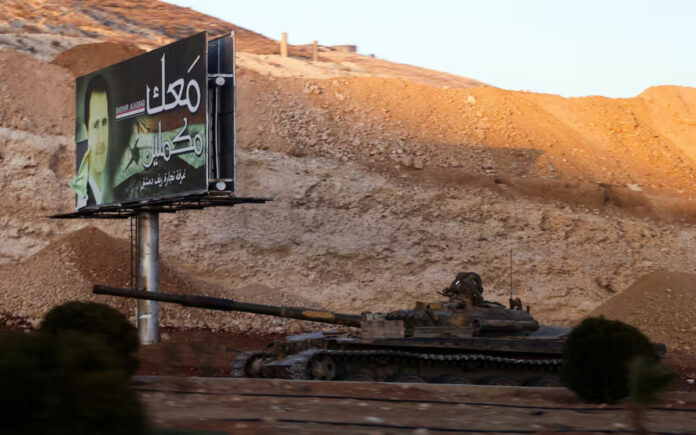Damascus: Syrians awoke Monday to the prospect of a hopeful yet uncertain future after rebels captured Damascus, forcing President Bashar al-Assad to flee to Russia. This marked the end of Syria’s 13-year civil war and over five decades of Assad family rule.
The rapid advance of the rebel alliance, led by Hayat Tahrir al-Sham (HTS), a former al-Qaeda affiliate, signaled a seismic shift in the Middle East. Assad’s fall dismantled a power base that allowed Russia and Iran to exert influence across the region.
Russian media reported that Moscow granted asylum to Assad and his family. Mikhail Ulyanov, Russia’s ambassador to international organizations in Vienna, confirmed the development on Telegram.
Global leaders cautiously welcomed the change, recognizing the uncertainty ahead for Syria and the broader region. U.S. President Joe Biden noted that, for the first time in years, neither Russia, Iran, nor Hezbollah retained significant influence in Syria.
HTS, still labeled a terrorist organization by the U.S., Turkey, and the United Nations, has sought to rehabilitate its image in recent years, attempting to gain acceptance among international governments and Syria’s minority communities.
Rebuilding a War-Torn Nation
The rebels now face the daunting challenge of rebuilding a nation devastated by war. Hundreds of thousands have died, cities lie in ruins, and the economy has been crippled by global sanctions. Rebuilding Syria will require billions of dollars in aid and international cooperation.
HTS leader Ahmed al-Sharaa, also known as Abu Mohammed al-Golani, addressed a jubilant crowd at Damascus’ historic Umayyad Mosque, promising to work toward a prosperous future. “A new history, my brothers, is being written in the entire region after this great victory,” he declared.
Also Read | From Aleppo to Damascus: How Syrian Rebels Ended Assad’s Reign
The fall of Assad also saw mass releases of political prisoners. Emotional reunions unfolded across the capital as families welcomed loved ones held for years under dire conditions. The White Helmets rescue organization mobilized to locate secret underground prisons still believed to hold detainees.
With the transfer of power underway, the rebel coalition aims to establish a transitional governing body to unite Syria’s diverse population, including Sunni Muslims, Christians, and Alawites, the minority sect to which Assad belongs.
Shockwaves Across the Globe
The swift developments in Syria have left world capitals reeling, adding to existing instability from the Gaza conflict and tensions between Israel and Iran.
The U.S. Central Command confirmed airstrikes against Islamic State targets in central Syria on Sunday, with Defense Secretary Lloyd Austin urging Turkey to prioritize civilian protection amid the transitional period.
During the civil war, Assad’s forces, bolstered by Russia, bombed opposition strongholds, displacing millions. The refugee crisis spilled across the Middle East and Europe, reshaping global migration policies.
Also Read | Copernicus Report: 2024 Confirmed as the Hottest Year in Recorded History
Turkey, a long-time supporter of certain rebel factions, and the United States, which backs Kurdish-led forces in Syria, now watch closely as a new political landscape unfolds in Damascus.
The global community waits to see how Syria’s new leadership addresses its monumental challenges and what the long-term implications will be for a region already on edge.



